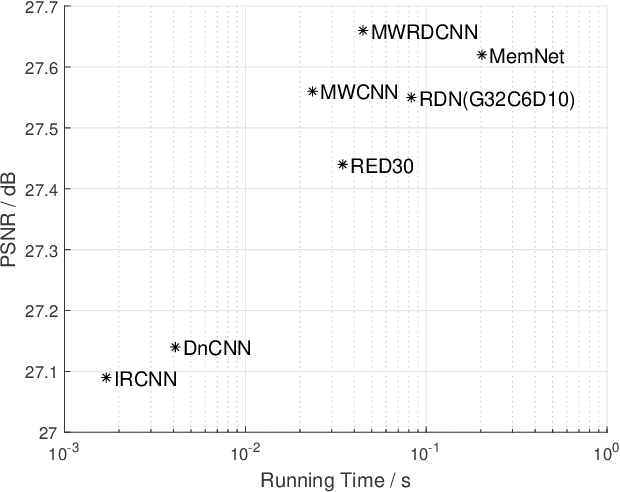Multi-wavelet residual dense convolutional neural network for image denoising
Paper and Code
Feb 19, 2020



Networks with large receptive field (RF) have shown advanced fitting ability in recent years. In this work, we utilize the short-term residual learning method to improve the performance and robustness of networks for image denoising tasks. Here, we choose a multi-wavelet convolutional neural network (MWCNN), one of the state-of-art networks with large RF, as the backbone, and insert residual dense blocks (RDBs) in its each layer. We call this scheme multi-wavelet residual dense convolutional neural network (MWRDCNN). Compared with other RDB-based networks, it can extract more features of the object from adjacent layers, preserve the large RF, and boost the computing efficiency. Meanwhile, this approach also provides a possibility of absorbing advantages of multiple architectures in a single network without conflicts. The performance of the proposed method has been demonstrated in extensive experiments with a comparison with existing techniques.
 Add to Chrome
Add to Chrome Add to Firefox
Add to Firefox Add to Edge
Add to Edge